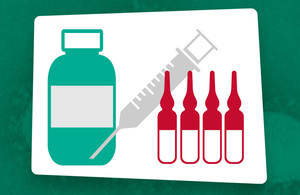Essex man jailed for longer following personal intervention by the Attorney General
A man who remorselessly attacked his former partner in her home has had his sentence increased following intervention by the Attorney General, Rt Hon Michael Ellis QC MP, who personally presented the case at the Court of Appeal.
John Berry, 32, had been in a relationship with the victim and following his release from prison on a separate charge, Berry started visiting his former partner at her home in Essex.
On 24 July 2017, Berry broke into his partner’s home and proceeded to attack her, strangling her, and repeatedly striking her body and head. During the attack she sustained seven separate facial fractures, resulting in a fractured cheek and jawbone. Her spleen was also ruptured. The victim’s injuries were such that were usually found to be as a result of a high-speed car collision.
Berry has 13 previous convictions for a total of 40 offences, including 5 offences against the victim in this case. Following a police investigation and manhunt, Berry was arrested in Cambridge in March 2018.
On 2 November 2020, Berry was convicted of causing grievous bodily harm with intent and sentenced to 9 years’ imprisonment at Chelmsford Crown Court. Berry claimed that the victim had attacked him with a knife.
Following a referral to the Court of Appeal under the Unduly Lenient Sentence (ULS) scheme, on 7 May the Court found Berry to be a Dangerous Offender and ruled that the sentence was unduly lenient. The Court imposed an extended determinate sentence of 15 years’ imprisonment followed by 5 years on licence.
The Attorney General, Rt Hon Michael Ellis QC MP, personally presented the case to the Court, underscoring the seriousness with which he views domestic abuse offences. In referring and presenting this case, the Attorney General acted independently of government and in the public interest.
After the hearing at the Court of Appeal, the Attorney General, Rt Hon Michael Ellis QC MP, said:
Berry entered into his victim’s home and viciously attacked her, inflicting life-changing injuries. He then sought to escape justice both before and after being arrested. His actions have caused significant harm to the victim, who I hope will feel some comfort from today’s decision.


